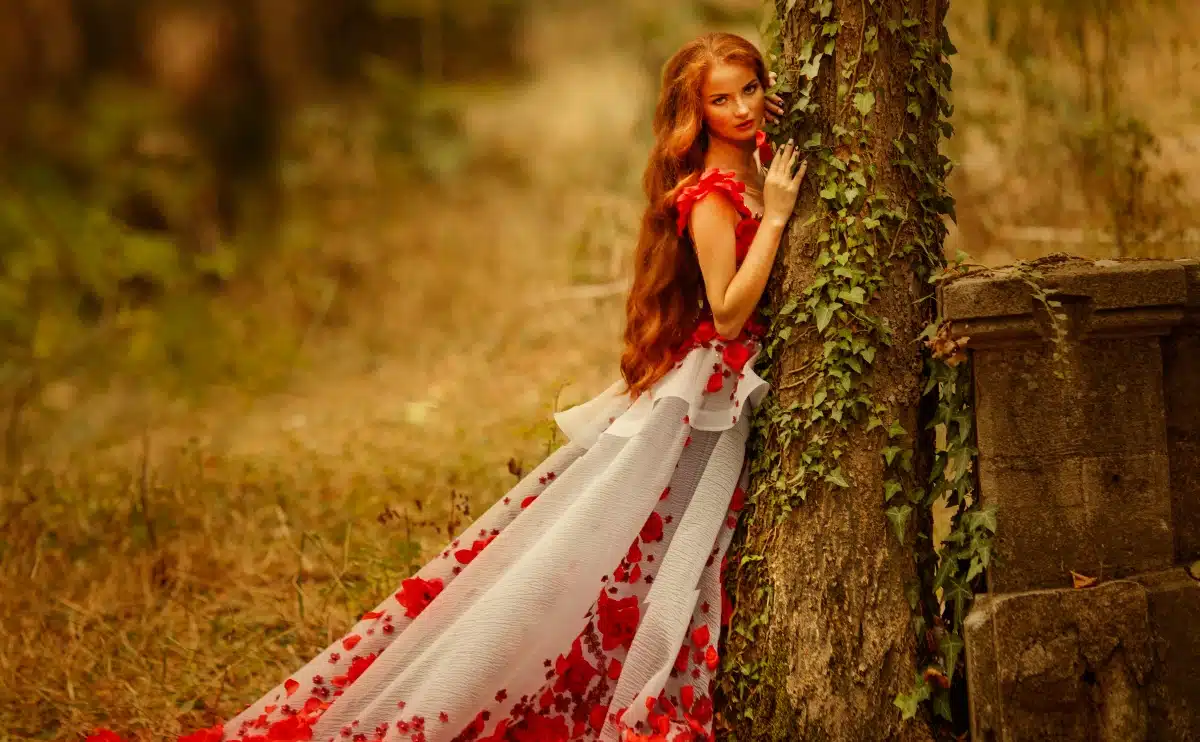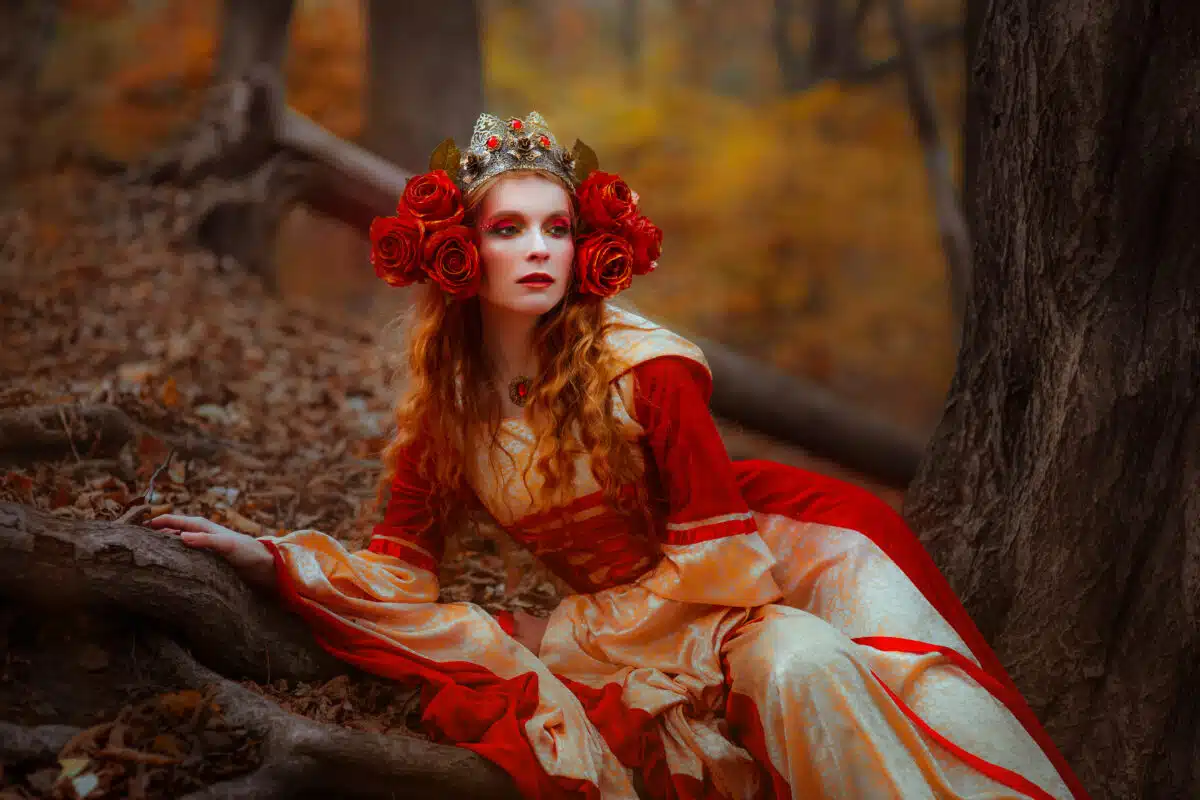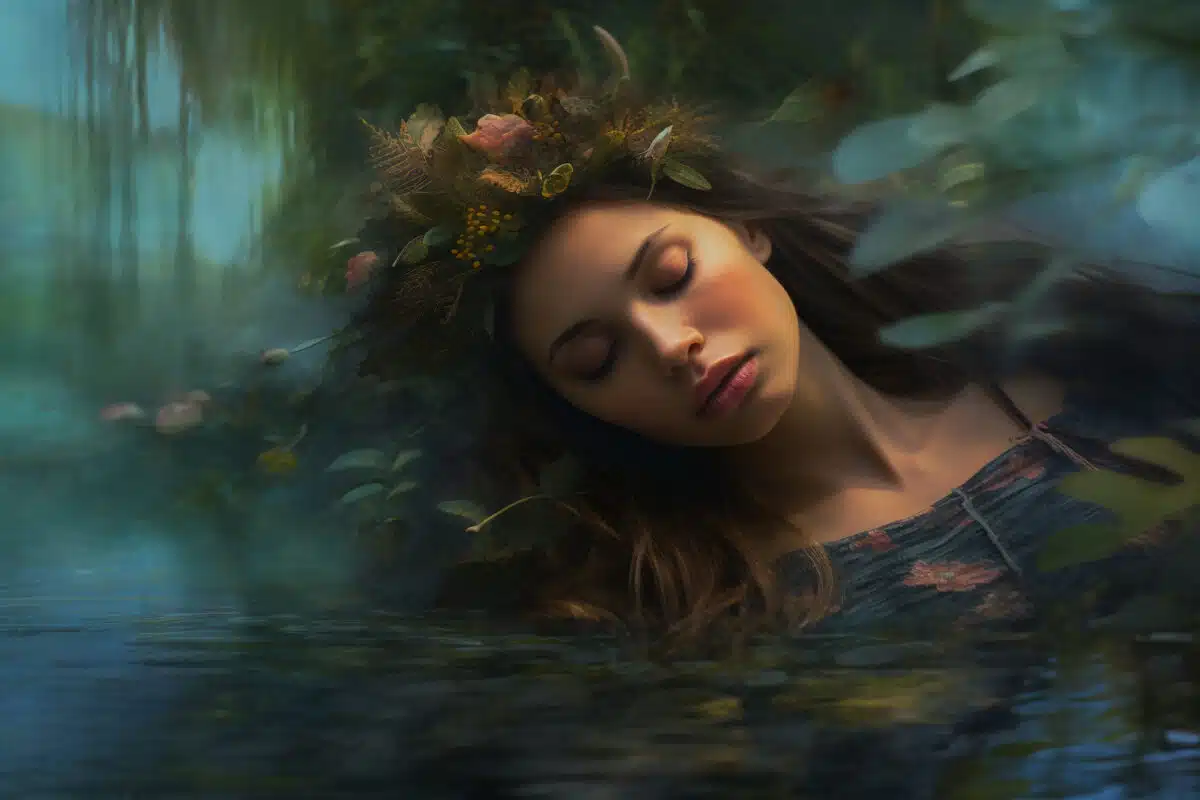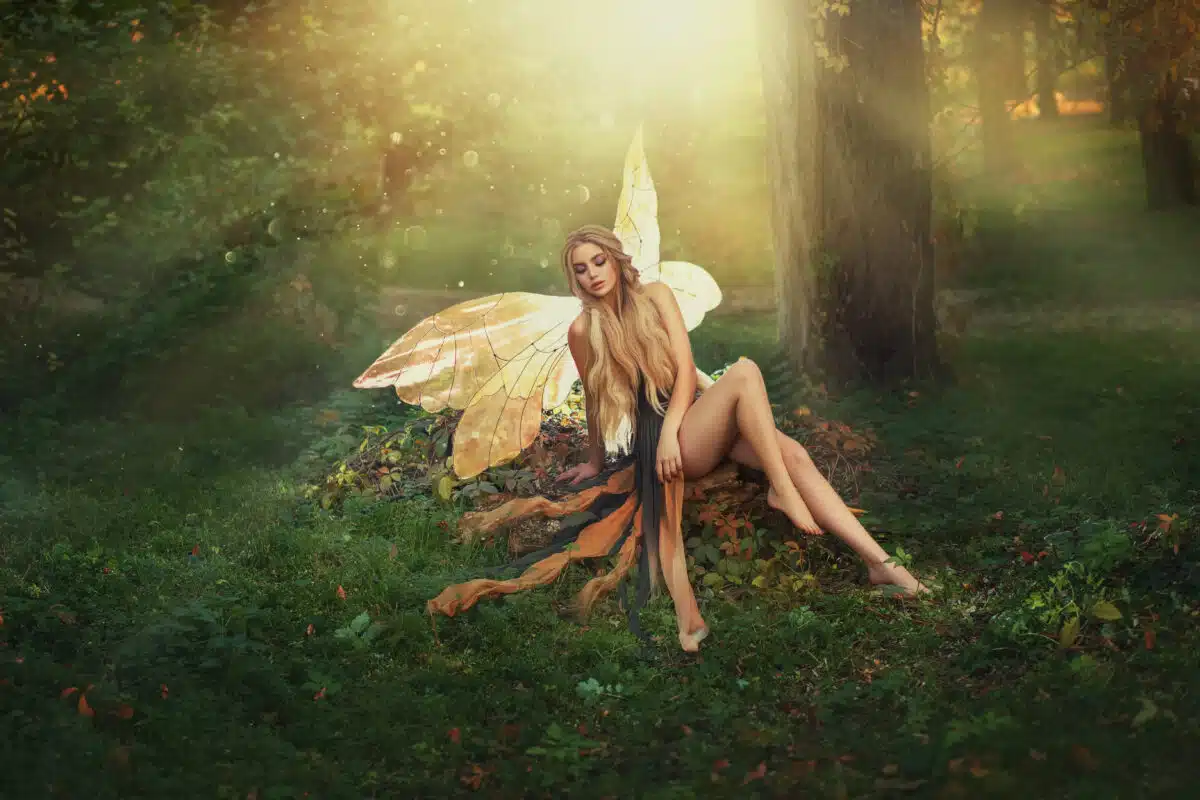Here are my favorite poems about wells.
From “The Well and the Tree” by William Butler Yeats to “Jacob’s Well” by James Freeman Clarke.
So if you want the best poems about wells, then you’re in the right place.
Keep scrolling down!
- 27 Marvelous Poems About Machines
- 11 Thrilling Poems About Scarecrows
- 21 Provocative Poems About Bridges

Riveting Poems About Wells

Let your imagination run wild with our wells-themed poems that reveal the enchanting nature of wells, all compiled in one destination for you.
We’ve curated a diverse selection of wells-themed poetry that will take you on an unforgettable journey.
Dive into short verses that are like quick sips from the wellspring of inspiration, or indulge in longer pieces that invite you to immerse yourself in the depths of poetic exploration.
So grab your metaphorical bucket and rope and let’s descend together into the depths of these captivating poems about wells.
Ready to quench your thirst?
Let’s get right to it!
My #1 Favorite Poem About Wells

“The Well of All-Healing” by George William Russell
There’s a cure for sorrow in the well at Ballylee
Where the scarlet cressets hang over the trembling pool:
And joyful winds are blowing from the Land of Youth to me,
And the heart of the earth is full.
Many and many a sunbright maiden saw the enchanted land
With star faces glimmer up from the druid wave:
Many and many a pain of love was soothed by a faery hand
Or lost in the love it gave.
When the quiet with a ring of pearl shall wed the earth,
And the scarlet berries burn dark by the stars in the pool;
Oh, it’s lost and deep I’ll be amid the Danaan mirth,
While the heart of the earth is full.
Why “The Well of All-Healing” Is My Favorite Poem

When I was researching for this collection, “The Well of All-Healing” by George William Russell captured my heart and became my favorite.
The way Russell weaves together nature, spirituality, and the human heart takes me on a profound journey of self-discovery and renewal every time I read it.
The characters’ journeys mirror our human quests for wholeness and understanding, reminding me that healing is not solely a physical but a profound exploration of our inner depths.
As I read each line, I can almost feel the soothing waters of the well, inspiring me to embrace moments of quiet reflection and tap into the wellspring of healing within.
Every time I read this poem, it leaves me with renewed hope and a profound appreciation for the beauty of life’s cyclical journey.
My Selection of Poems About Wells

Step into the enchanting realm of well-inspired poetry, where verses flow like springs, stanzas dive into imagination, and secrets, surprises, and clever wordplay abound.
So grab your poetic snorkel and get ready for a dive into a realm where wells become windows to whimsical wonders!
“A Well.” by Emily Elizabeth Dickinson
What mystery pervades a well!
The water lives so far,
Like neighbor from another world
Residing in a jar.
The grass does not appear afraid;
I often wonder he
Can stand so close and look so bold
At what is dread to me.
Related somehow they may be, —
The sedge stands next the sea,
Where he is floorless, yet of fear
No evidence gives he..
But nature is a stranger yet;
The ones that cite her most
Have never passed her haunted house,
Nor simplified her ghost.
To pity those that know her not
Is helped by the regret
That those who know her, know her less
The nearer her they get.
“The Well and the Tree” by William Butler Yeats
‘The man that I praise,’
Cries out the empty well,
‘Lives all his days
Where a hand on the bell
Can call the milch-cows
To the comfortable door of his house.
Who but an idiot would praise
Dry stones in a well?’
The Man that I praise,’
Cries out the leafless tree,
‘Has married and stays
By an old hearth, and he
On naught has set store
But children and dogs on the floor.
Who but an idiot would praise
A withered tree?’
“The Well of Loch Maree” by John Greenleaf Whittier
Calm on the breast of Loch Maree
A little isle reposes;
A shadow woven of the oak
And willow o’er it closes.
Within, a Druid’s mound is seen,
Set round with stony warders;
A fountain, gushing through the turf,
Flows o’er its grassy borders.
And whoso bathes therein his brow,
With care or madness burning,
Feels once again his healthful thought
And sense of peace returning
O restless heart and fevered brain,
Unquiet and unstable,
That holy well of Loch Maree
Is more than idle fable!
Life’s changes vex, its discords stun,
Its glaring sunshine blindeth,
And blest is he who on his way
That fount of healing findeth!
The shadows of a humbled will
And contrite heart are o’er it;
Go read its legend, “Trust In God,”
On Faith’s white stones before it

“The Well of St. Keyne” by Robert Southey
A well there is in the west country,
And a clearer one never was seen;
There is not a wife in the west country
But has heard of the Well of St. Keyne.
An oak and an elm-tree stand beside,
And behind doth an ash-tree grow,
And a willow from the bank above
Droops to the water below.
A traveller came to the Well of St. Keyne,
Joyfully he drew nigh,
For from cock-crow he had been travelling,
And there was not a cloud in the sky.
He drank of the water so cool and clear,
For thirsty and hot was he;
And he sat down upon the bank
Under the willow-tree.
There came a man from the house hard by
At the well to fill his pail;
On the well-side he rested it,
And he bade the stranger hail.
“Now art thou a bachelor, stranger?” quoth he,
“For an if thou hast a wife,
The happiest draught thou hast drank this day
That ever thou didst in thy life.
“Or hast thy good woman, if one thou hast,
Ever here in Cornwall been?
For an if she have, I’ll venture my life
She has drank of the Well of St. Keyne.”
“I have left a good woman who never was here,”
The stranger he made reply;
“But that my draught should be the better for that
I pray you answer me why?”
“St. Keyne,” quoth the Cornishman, “many a time
Drank of this crystal well,
And before the angels summon’d her,
She laid on the water a spell.
“If the husband of this gifted well
Shall drink before his wife,
A happy man thenceforth is he,
For he shall be master for life.
“But if the wife should drink of it first,
God help the husband then!”
The stranger stooped to the Well of St. Keyne,
And drank of the water again.
“You drank of the well, I warrant, betimes?”
He to the Cornishman said:
But the Cornishman smiled as the stranger spake,
And sheepishly shook his head.
“I hasten’d as soon as the wedding was done,
And left my wife in the porch;
But i’ faith she had been wiser than me,
For she took a bottle to church.”
“The Holy Well” by Unknown
I.
As it fell out one May morning,
And upon one bright holiday,
Sweet Jesus asked of his dear mother,
If he might go to play.
II.
‘To play, to play, sweet Jesus shall go,
And to play pray get you gone;
And let me hear of no complaint
At night when you come home.’
III.
Sweet Jesus went down to yonder town,
As far as the Holy Well,
And there did see as fine children
As any tongue can tell.
IV.
He said, ‘God bless you every one,
And your bodies Christ save and see:
Little children, shall I play with you,
And you shall play with me?’
V.
But they made answer to him,
‘No: They were lords and ladies all;
And he was but a maiden’s child,
Born in an ox’s stall.’
VI.
Sweet Jesus turnéd him around,
And he neither laughed nor smiled,
But the tears came trickling from his eyes
To be but a maiden’s child.
VII.
Sweet Jesus turnéd him about,
To his mother’s dear home went he,
And said, ‘I have been in yonder town,
As far as you can see.
VIII.
‘I have been down in yonder town
As far as the Holy Well,
There did I meet as fine children
As any tongue can tell.
IX.
‘I bid God bless them every one,
And their bodies Christ save and see:
Little children, shall I play with you,
And you shall play with me?
X.
‘But they made answer to me, No:
They were lords and ladies all;
And I was but a maiden’s child,
Born in an ox’s stall.’—
XI.
‘Though you are but a maiden’s child,
Born in an ox’s stall,
Thou art the Christ, the King of heaven,
And the Saviour of them all.
XII.
‘Sweet Jesus, go down to yonder town
As far as the Holy Well,
And take away those sinful souls,
And dip them deep in hell.’
XIII.
‘Nay, nay,’ sweet Jesus said,
‘Nay, nay, that may not be;
For there are too many sinful souls
Crying out for the help of me.’
“The Holy Well” by John Fletcher
From thy forehead thus I take
These herbs, and charge thee not awake
Till in yonder holy well
Thrice, with powerful magic spell,
Filled with many a baleful word,
Thou hast been dipped. Thus, with my cord
Of blasted hemp, by moonlight twined,
I do thy sleepy body bind.
I turn thy head unto the east,
And thy feet unto the west,
Thy left arm to the south put forth,
And thy right unto the north,
I take thy body from the ground,
In this deep and deadly swound,
And into this holy spring
I let thee slide down by my string.
Take this maid, thou holy pit,
To thy bottom; nearer yet;
In thy water pure and sweet,
By thy leave I dip her feet;
Thus I let her lower yet,
That her ankles may be wet;
Yet down lower, let her knee
In thy waters washèd be.
There stop. Fly away,
Everything that loves the day!
Truth, that hath but one face,
Thus I charm thee from this place.
Snakes that cast your coats for new,
Chameleons that alter hue,
Hares that yearly sexes change,
Proteus altering oft and strange,
Hecate with shapes three,
Let this maiden changèd be,
With this holy water wet,
To the shape of Amoret!
Cynthia, work thou with my charm!
Thus I draw thee free from harm,
Up out of this blessèd lake:
Rise both like her and awake!

“The Well in the Desert” by John Gould Fletcher
By the well in the desert I sat for long,
And saw the magpies, with black and white chequered bodies,
Leaping from twig to twig of the grease-wood
To look at the water spilled on the ground
By the herder who went by with three lean cattle
Climbing out of the blue and gold shimmer of morning.
There was the shallow well, with stones piled about it,
The coarse tattered rope, the battered tin bucket,
And the nose of my pony cropping thin grass not far off;
Then gray sagebrush and silence.
At the horizon
The heat rose and fell—
Sharp flickering arpeggios;
The wind started up somewhere,
Then stopped.
The blue smoke of my cigarette
Wavered and failed:
I was drowsing.
And it seemed to me in my dream
I was riding
To a low brown cluster of squat adobe houses
Under the brow of a red barren mesa,
Where the track of a wagon trail passed, dipped, and vanished,
By a corral with walls of rough plastered stone:
And I saw,
Looking down at the houses,
An Indian with a red sash, flannel shirt, and blue trousers,
And a red band about his coarse black hair.
Eyes black as an antelope
Looked up at me:
Sheep were feeding about him.
And I said to him, “Where do you come from?”
And he replied,
“From Nazareth, beyond the desert,
In Galilee.”
“On Finding a Hairpin in a Disused Well” by Anonymous (Arthur Waley, translator)
Once a girl was gathering flowers,
Gathering flowers at the well-side.
The flowers she plucked she put in her hair
And she looked at herself in the well-water.
Long she looked and couldn’t stop,
Laughing and laughing at her own beauty,
Till one of her golden pins fell out
And there in the well it has lain ever since.
Its peacock-feathers are turned to mud,
But the golden shaft is as bright as new.
The person who wore it is dead and gone;
What was the use of the thing lasting?
“Going for Water” by Robert Frost
The well was dry beside the door,
And so we went with pail and can
Across the fields behind the house
To seek the brook if still it ran;
Not loth to have excuse to go,
Because the autumn eve was fair
(Though chill) because the fields were ours,
And by the brook our woods were there.
We ran as if to meet the moon
That slowly dawned behind the trees,
The barren boughs without the leaves,
Without the birds, without the breeze.
But once within the wood, we paused
Like gnomes that hid us from the moon,
Ready to run to hiding new
With laughter when she found us soon.
Each laid on other a staying hand
To listen ere we dared to look,
And in the hush we joined to make
We heard—we knew we heard—the brook.
A note as from a single place,
A slender tinkling fall that made
Now drops that floated on the pool
Like pearls, and now a silver blade.

“Phœbe, the Nymph of the Well” by Frederick Locker-Lampson
She smiled as she gave him a draught from the springlet,—
Tunbridge, thy waters are bitter, alas!
But love finds an ambush in dimple and ringlet;
“Thy health, pretty maiden!”—He emptied the glass.
He saw, and he loved her, nor cared he to quit her;
The oftener he came, why the longer he stayed;
Indeed, though the spring was exceedingly bitter,
We found him eternally pledging the maid.
A preux chevalier, and but lately a cripple,
He met with his hurt where a regiment fell,
But worse was he wounded when staying to tipple
A bumper to “Phœbe, the Nymph of the Well.”
Some swore he was old, that his laurels were faded,
All vowed she was vastly too nice for a nurse;
But Love never looks on the matter as they did,
She took the brave soldier for better or worse.
And here is the home of her fondest election,—
The walls may be worn, but the ivy is green;
And here she has tenderly twined her affection
Around a true soldier who bled for the Queen.
See, yonder he sits, where the church-bells invite us;
What child is that spelling the epitaphs there?
’T is the joy of his age, and may fate so requite us
When time shall have broken, or sickness, or care.
Erelong, ay, too soon, a sad concourse will darken
The doors of that church and that peaceful abode;
His place then no longer will know him,—but hearken,
The widow and orphan appeal to their God.
Much peace will be hers. “If our lot must be lowly,
Resemble the father who’s with us no more”;
And only on days that are high or are holy,
She’ll show him the cross that her warrior wore.
So taught, he will rather take after his father,
And wear a long sword to our enemies’ loss;
And some day or other he’ll bring to his mother
Victoria’s gift,—the Victoria Cross!
And still she’ll be charming, though ringlet and dimple
Perhaps may have lost their peculiar spell;
And often she’ll quote, with complacency simple,
The compliments paid to the Nymph of the Well.
And then will her darling, like all good and true ones,
Console and sustain her,—the weak and the strong;
And some day or other two black eyes or blue ones
Will smile on his path as he journeys along.
Wherever they win him, whoever his Phœbe,
Of course of all beauty she must be the belle,—
If at Tunbridge he chance to fall in with a Hebe,
He will not fall out with a draught from the well.
“Our Lady’s Well” by Felicia Hemans
Fount of the woods! thou art hid no more
From heaven’s clear eye, as in time of yore.
For the roof hath sunk from thy mossy walls,
And the sun’s free glance on thy slumber falls;
And the dim tree shadows across thee pass,
As the boughs are swayed o’er thy silvery glass;
And the reddening leaves to thy breast are blown,
When the autumn wind hath a stormy tone;
And thy bubbles rise to the flashing rain,—
Bright fount! thou art nature’s own again!
Fount of the vale! thou art sought no more
By the pilgrim’s foot, as in time of yore,
When he came from afar, his beads to tell,
And to chant his hymn at Our Lady’s Well.
There is heard no Ave through thy bowers,
Thou art gleaming lone midst thy water flowers!
But the herd may drink from thy gushing wave,
And there may the reaper his forehead lave,
And the woodman seeks thee not in vain,—
Bright fount! thou art nature’s own again!
Fount of the virgin’s ruined shrine!
A voice that speaks of the past is thine!
It mingles the tone of a thoughtful sigh
With the notes that ring through the laughing sky;
Midst the mirthful song of the summer bird,
And the sound of the breeze, it will yet be heard!—
Why is it that thus we may gaze on thee,
To the brilliant sunshine sparkling free?
’T is that all on earth is of Time’s domain,—
He hath made thee nature’s own again!
Fount of the chapel with ages gray!
Thou art springing freshly amidst decay;
Thy rites are closed and thy cross lies low,
And the changeful hours breathe o’er thee now.
Yet if at thine altar one holy thought
In man’s deep spirit of old hath wrought;
If peace to the mourner hath here been given,
Or prayer from a chastened heart to Heaven,—
Be the spot still hallowed while Time shall reign,
Who hath made thee nature’s own again!
“Nun’s Well, Brigham” by William Wordsworth
The cattle, crowding round this beverage clear
To slake their thirst, with reckless hoofs have trod
The encircling turf into a barren clod,
Through which the waters creep, then disappear,
Born to be lost in Derwent, flowing near;
Yet o’er the brink, and round the limestone cell
Of the pure spring, (they call it the “Nun’s Well,”
Name that first struck by chance my startled ear,)
A tender spirit broods,—the pensive shade
Of ritual honors to this fountain paid
By hooded votaresses with saintly cheer;
Albeit oft the Virgin-Mother mild
Looked down with pity upon eyes beguiled
Into the shedding of “too soft a tear.”

“Hart-Leap Well” by William Wordsworth
The knight had ridden down from Wensley Moor,
With the slow motion of a summer’s cloud;
And now, as he approached a vassal’s door,
“Bring forth another horse!” he cried aloud.
“Another horse!” That shout the vassal heard,
And saddled his best steed, a comely gray.
Sir Walter mounted him; he was the third
Which he had mounted on that glorious day.
Joy sparkled in the prancing courser’s eyes;
The horse and horseman are a happy pair;
But, though Sir Walter like a falcon flies,
There is a doleful silence in the air.
A rout this morning left Sir Walter’s Hall,
That as they galloped made the echoes roar;
But horse and man are vanished, one and all:
Such race, I think, was never seen before.
Sir Walter, restless as a veering wind,
Calls to the few tired dogs that yet remain;
Blanch, Swift, and Music, noblest of their kind,
Follow, and up the weary mountain strain.
The knight hallooed, he cheered and chid them on
With suppliant gestures and upbraidings stern;
But breath and eyesight fail, and, one by one,
The dogs are stretched among the mountain fern.
Where is the throng, the tumult of the race?
The bugles that so joyfully were blown?
This chase it looks not like an earthly chase;
Sir Walter and the hart are left alone.
The poor hart toils along the mountain-side;
I will not stop to tell how far he fled,
Nor will I mention by what death he died;
But now the knight beholds him lying dead.
Dismounting, then, he leaned against a thorn;
He had no follower, dog nor man nor boy:
He neither cracked his whip nor blew his horn,
But gazed upon the spoil with silent joy.
Close to the thorn on which Sir Walter leaned
Stood his dumb partner in this glorious feat;
Weak as a lamb the hour that it is yeaned,
And white with foam as if with cleaving sleet.
Upon his side the hart was lying stretched;
His nostril touched a spring beneath a hill,
And with the last deep groan his breath had fetched
The waters of the spring were trembling still.
And now, too happy for repose or rest,
(Never had living man such joyful lot!)
Sir Walter walked all round, north, south, and west,
And gazed and gazed upon that darling spot.
And climbing up the hill (it was at least
Four roods of sheer ascent), Sir Walter found
Three several hoof-marks which the hunted beast
Had left imprinted on the grassy ground.
Sir Walter wiped his face, and cried, “Till now
Such sight was never seen by human eyes;
Three leaps have borne him from this lofty brow
Down to the very fountain where he lies.
“I’ll build a pleasure-house upon this spot,
And a small arbor, made for rural joy;
’T will be the traveller’s shed, the pilgrim’s cot,
A place of love for damsels that are coy.
“A cunning artist will I have to frame
A basin for that fountain in the dell!
And they who do make mention of the same
From this day forth shall call it Hart-Leap Well.
“The Well of St. John” by Robert Stephen Hawker
They dreamed not in old Hebron, when the sound
Went through the city, that the promised son
Was born to Zachary, and his name was John,—
They little thought that here in this far ground,
Beside the Severn sea, that Hebrew child
Would be a cherished memory of the wild;
Here, where the pulses of the ocean bound
Whole centuries away, while one meek cell,
Built by the fathers o’er a lonely well,
Still breathes the Baptist’s sweet remembrance round:
A spring of silent waters with his name,
That from the angel’s voice in music came,
Here in the wilderness so faithful found,
It freshens to this day the Levite’s grassy mound.
“The Doom-Well of St. Madron” by Robert Stephen Hawker
“Plunge thy right hand in St. Madron’s spring,
If true to its troth be the palm you bring;
But if a false sigil thy fingers bear,
Lay them the rather on the burning share.”
Loud laughed King Arthur when-as he heard
That solemn friar his boding word;
And blithely he sware as a king he may,
“We tryst for St. Madron’s at break of day.”
“Now horse and hattock, both but and ben,”
Was the cry at Lauds, with Dundagel men;
And forth they pricked upon Routorr side,
As goodly a raid as a king could ride.
Proud Gwennivar rode like a queen of the land,
With page and with squire at her bridle hand;
And the twice six knights of the stony ring,
They girded and guarded their Cornish king.
Then they halted their steeds at St. Madron’s cell,
And they stood by the monk of the cloistered well;
“Now off with your gauntlets,” King Arthur he cried,
“And glory or shame for our Tamar side.”
’T were sooth to sing how Sir Gauvain smiled,
When he grasped the waters so soft and mild;
How Sir Lancelot dashed the glistening spray
O’er the rugged beard of the rough Sir Kay.
Sir Bevis he touched and he found no fear;
’T was a bénitée stoup to Sir Belvidere;
How the fountain flashed o’er King Arthur’s Queen,
Say, Cornish dames, for ye guess the scene.
“Now rede me my riddle, Sir Mordred, I pray,
My kinsmen, mine ancient, my Bien-aimé;
Now rede me my riddle, and rede it aright,
Art thou traitorous knave or my trusty knight?”
He plunged his right arm in the judgment well,
It bubbled and boiled like a caldron of hell:
He drew and he lifted his quivering limb,
Ha! Sir Judas, how Madron had sodden him.
Now let Uter Pendragon do what he can,
Still the Tamar River will run as it ran;
Let king or let kaisar be fond or be fell,
Ye may harowe their troth in St. Madron’s well.

“Wearie’s Well” by William Motherwell
In a saft simmer gloamin’,
In yon dowie dell,
It was there we twa first met,
By Wearie’s cauld well.
We sat on the broom bank,
And looked in the burn,
But sidelang we looked on
Ilk ither in turn.
The corncraik was chirming
His sad eerie cry,
And the wee stars were dreaming
Their path through the sky;
The burn babbled freely
Its love to ilk flower,
But we heard and we saw naught
In that blessed hour.
We heard and we saw naught,
Above or around;
We felt that our luve lived,
And loathed idle sound.
I gazed on your sweet face
Till tears filled my e’e,
And they drapt on your wee loof,—
A warld’s wealth to me.
Now the winter snaw ’s fa’ing
On bare holm and lea,
And the cauld wind is strippin’
Ilk leaf aff the tree.
But the snaw fa’s not faster,
Nor leaf disna part
Sae sune frae the bough, as
Faith fades in your heart.
You ’ve waled out anither
Your bridegroom to be;
But can his heart luve sae
As mine luvit thee?
Ye ’ll get biggings and mailins,
And mony braw claes;
But they a’ winna buy back
The peace o’ past days.
Farewell, and forever,
My first luve and last;
May thy joys be to come,—
Mine live in the past.
In sorrow and sadness
This hour fa’s on me;
But light, as thy luve, may
It fleet over thee!
“The Wells o’ Wearie” by Alexander A. Ritchie
Sweetly shines the sun on auld Edinbro’ toun,
And mak’s her look young and cheerie;
Yet I maun awa’ to spend the afternoon
At the lanesome Wells o’ Wearie.
And you maun gang wi’ me, my winsome Mary Grieve,
There ’s naught in the world to fear ye;
For I ha’e asked your minnie, and she has gi’en ye leave
To gang to the Wells o’ Wearie.
O, the sun winna blink in thy bonnie blue een,
Nor tinge the white brow o’ my dearie;
For I ’ll shade a bower wi’ rashes lang and green
By the lanesome Wells o’ Wearie.
But, Mary, my love, beware ye dinna glower
At your form in the water so clearly,
Or the fairy will change you into a wee, wee flower,
And you ’ll grow by the Wells o’ Wearie.
Yestreen as I wandered there a’ alane,
I felt unco douf and drearie,
For wanting my Mary, a’ around me was but pain
At the lanesome Wells o’ Wearie.
Let fortune or fame their minions deceive,
Let fate look gruesome and eerie;
True glory and wealth are mine wi’ Mary Grieve,
When we meet by the Wells o’ Wearie.
Then gang wi’ me, my bonnie Mary Grieve,
Nae danger will daur to come near ye;
For I ha’e asked your minnie, and she has gi’en ye leave
To gang to the Wells o’ Wearie.
“Hedwig’s Well, near Jauer” by Karl Theodor Körner
How shall I speak what in my breast hath striven?
How joy and sorrow bear, quick changes proving,
My softened heart to days of happy loving,
In which tears had not yet their poison given!
Who hath bound in sorrow my free Heaven?
Who dared to fetter thus my spirit’s roving,
The minstrel to war’s crimes by force removing?
Who hath my tree of peace thus foully riven?
What! hath not mine own hand the sword fast strained,
That to my German soil, by blood free rained,
Youth for a holy work, and life, he gained?
There speaks a God, in these waves’ murmurs dwelling,
“Strength must have way, the rocky heart o’er-swelling,
And from the deeps of death springs life pure welling.”

“The Well of Sychar” by Sir Edward Denny
Sweet was the hour, O Lord! to thee,
At Sychar’s lonely well,
When a poor outcast heard thee there
Thy great salvation tell.
Thither she came; but O, her heart,
All filled with earthly care,
Dreamed not of thee, nor thought to find
The hope of Israel there.
Lord! ’t was thy power, unseen, that drew
The stray one to that place,
In solitude to learn of thee
The secrets of thy grace.
There Jacob’s erring daughter found
Those streams, unknown before,
The water-brooks of life, that make
The weary thirst no more.
And, Lord, to us, as vile as she,
Thy gracious lips have told
That mystery of love, revealed
At Jacob’s well of old.
In spirit, Lord, we ’ve sat with thee
Beside the springing well
Of life and peace, and heard thee there
Its healing virtues tell.
Dead to the world, we dream no more
Of earthly pleasures now;
Our deep, divine, unfailing spring
Of grace and glory thou!
No hope of rest in aught beside,
No beauty, Lord, we see;
And, like Samaria’s daughter, seek
And find our all in thee.
“Fetching Water from the Well” by Anonymous
Early on a sunny morning, while the lark was singing sweet,
Came, beyond the ancient farm-house, sounds of lightly tripping feet.
’T was a lowly cottage maiden going,—why, let young hearts tell,—
With her homely pitcher laden, fetching water from the well.
Shadows lay athwart the pathway, all along the quiet lane,
And the breezes of the morning moved them to and fro again.
O’er the sunshine, o’er the shadow, passed the maiden of the farm,
With a charmèd heart within her, thinking of no ill or harm.
Pleasant, surely, were her musings, for the nodding leaves in vain
Sought to press their brightening image on her ever-busy brain.
Leaves and joyous birds went by her, like a dim, half-waking dream;
And her soul was only conscious of life’s gladdest summer gleam.
At the old lane’s shady turning lay a well of water bright,
Singing, soft, its hallelujah to the gracious morning light.
Fern-leaves, broad and green, bent o’er it where its silvery droplets fell,
And the fairies dwelt beside it, in the spotted foxglove bell.
Back she bent the shading fern-leaves, dipt the pitcher in the tide,—
Drew it, with the dripping waters flowing o’er its glazèd side.
But before her arm could place it on her shiny, wavy hair,
By her side a youth was standing!—Love rejoiced to see the pair!
Tones of tremulous emotion trailed upon the morning breeze,
Gentle words of heart-devotion whispered ’neath the ancient trees.
But the holy, blessèd secrets it becomes me not to tell:
Life had met another meaning, fetching water from the well!
Down the rural lane they sauntered. He the burden-pitcher bore;
She, with dewy eyes down looking, grew more beauteous than before!
When they neared the silent homestead, up he raised the pitcher light;
Like a fitting crown he placed it on her hair of wavelets bright:
Emblem of the coming burdens that for love of him she ’d bear, Calling every burden blessèd, if his love but lighted there.
Then, still waving benedictions, further, further off he drew,
While his shadow seemed a glory that across the pathway grew.
Now about her household duties silently the maiden went,
And an ever-radiant halo o’er her daily life was blent.
Little knew the agèd matron as her feet like music fell,
What abundant treasure found she fetching water from the well!
“The Seaside Well” by Anonymous
One day I wandered where the salt sea-tide
Backward had drawn its wave,
And found a spring as sweet as e’er hillside
To wild-flowers gave.
Freshly it sparkled in the sun’s bright look,
And mid its pebbles strayed,
As if it thought to join a happy brook
In some green glade.
But soon the heavy sea’s resistless swell
Came rolling in once more,
Spreading its bitter o’er the clear sweet well
And pebbled shore.
Like a fair star thick buried in a cloud,
Or life in the grave’s gloom,
The well, enwrapped in a deep watery shroud,
Sunk to its tomb.
As one who by the beach roams far and wide,
Remnant of wreck to save,
Again I wandered when the salt sea-tide
Withdrew its wave;
And there, unchanged, no taint in all its sweet,
No anger in its tone,
Still as it thought some happy brook to meet,
The spring flowed on.
While waves of bitterness rolled o’er its head,
Its heart had folded deep
Within itself, and quiet fancies led,
As in a sleep;
Till, when the ocean loosed his heavy chain,
And gave it back to day,
Calmly it turned to its own life again
And gentle way.
Happy, I thought, that which can draw its life
Deep from the nether springs,
Safe ’neath the pressure, tranquil mid the strife,
Of surface things.
Safe—for the sources of the nether springs
Up in the far hills lie;
Calm—for the life its power and freshness brings
Down from the sky.
So, should temptations threaten, and should sin
Roll in its whelming flood,
Make strong the fountain of thy grace within
My soul, O God!
If bitter scorn, and looks, once kind, grown strange,
With crushing chillness fall,
From secret wells let sweetness rise, nor change
My heart to gall!
When sore thy hand doth press, and waves of thine
Afflict me like a sea,—
Deep calling deep,—infuse from source divine
Thy peace in me!
And when death’s tide, as with a brimful cup,
Over my soul doth pour,
Let hope survive,—a well that springeth up
Forevermore!
Above my head the waves may come and go,
Long brood the deluge dire,
But life lies hidden in the depths below
Till waves retire,—
Till death, that reigns with overflowing flood,
At length withdraw its sway,
And life rise sparkling in the sight of God
An endless day.

“O Wells and Springs” by Richard Wilton
O Wells and Springs, where’er ye flow,
Bless God with your sweet undersong;
His ceaseless praises bear along,
Rippling and tinkling as ye go:
What though your voice is soft and low,
’Tis musical your flowers among:
O Wells and Springs, where’er ye flow,
Bless God with your sweet undersong.
When fainting with the noonday glow,
Some traveller quaffs you, and is strong;
When under midnight’s shining throng
A mirror to some star ye show:
O Wells and Springs, where’er ye flow,
Bless God with your sweet undersong.
“A Well, and the Cherry Trees Swaying” by Alexey K. Tolstoy
A well, and the cherry trees swaying
Where bare girlish feet trod the fruit;
Nearby the damp imprint betraying
The stamp of a heavy nailed boot.
Stilled now is the place of their meeting,
But nothing the silence avails:
In my brain passion’s echo repeating
Their whispers—the splash of the pails.
“Jacob’s Well” by James Freeman Clarke
Here, after Jacob parted from his brother,
His daughters lingered round this well, new made;
Here, seventeen centuries after, came another,
And talked with Jesus, wondering and afraid.
Here, other centuries past, the Emperor’s mother
Shelter’d its waters with a temple’s shade.
Here ’mid the fallen fragments, as of old,
The girl her pitcher dips within its waters cold.
And Jacob’s race grew strong for many an hour,
Then torn beneath the Roman eagle lay;
The Roman’s vast and earth-controlling power
Has crumbled, like these shafts and stones, away,
But still the waters, fed by dew and shower,
Come up as ever, to the light of day,
And still the maid bends downward with her urn,
Well pleased to see its glass her lovely face return.
And those few words of truth, first uttered here,
Have sunk into the human soul and heart;
A spiritual faith dawns bright and clear,
Dark creeds and ancient mysteries depart;
The hour for God’s true worshippers draws near;
Then mourn not o’er the wrecks of earthly art;
Kingdoms may fall, and human works decay,
Nature moves on unchanged, Truths never pass away.
